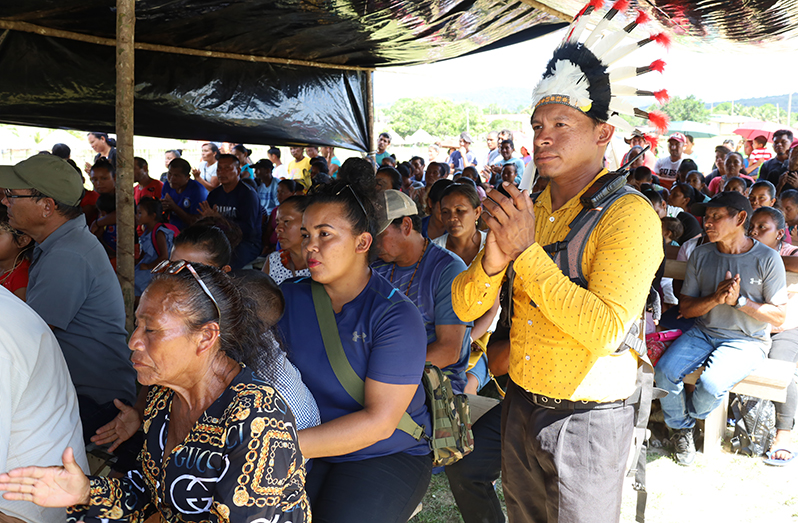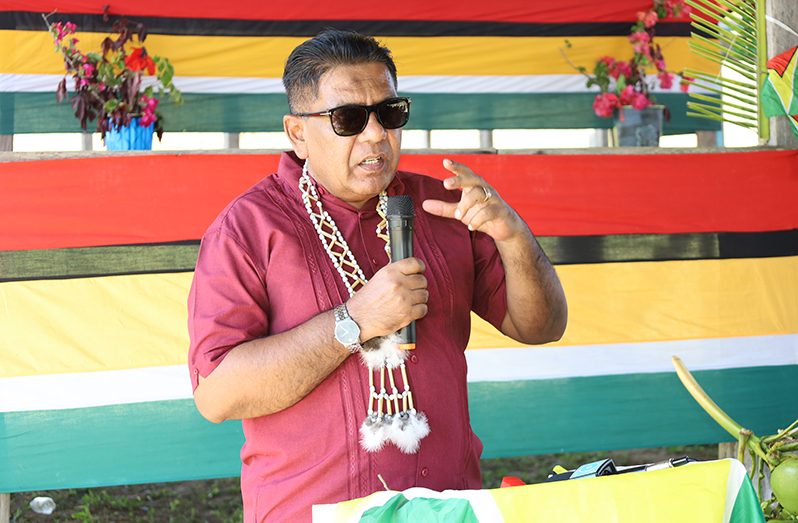FARMERS from the villages of Kato and Monkey Mountain in Region Eight are now set to benefit from improved pastures and land preparation for row-crops production through the Rural Agriculture Infrastructure Development Project (RAID).
This was made possible through the procurement of heavy-duty farming tools to the tune of $32,587,766. Each village received a heavy-duty tractor with implements that include a disc plough, a roam plough, a cassava planter, and a ditch digger.
Through this intervention, communities are expected to benefit from improved land preparation for traditional crops such as cassava, row crops, and pasture lands. Farmers will also be able to plant seeds and other crops mechanically, thus reducing labour costs and enhancing productivity.
Agriculture Minister, Zulfikar Mustapha, while meeting with farmers and residents from Kato, said the Government was working to ensure farmers in hinterland regions benefit from the same opportunities as farmers on the Coast.
“This project will cost over $16 million. These pieces of equipment will be assigned to the community to help farmers develop agriculture in the community. The village will also receive assistance from the NDIA to maintain the machinery. We will assist you with fuel and servicing of the tractor,” the minister said.
Minister Mustapha told the farmers that a comprehensive agriculture programme needs to be developed to guide the operations of the machinery. This, he noted, will ensure all of the farmers benefit from the use of the new equipment.
Meanwhile, at Monkey Mountain, several farmers raised a number of concerns with the minister. They noted that their farms were located across the river in Region Nine because they didn’t have land to plant close to their homes. Additionally, farmers and residents said that they needed assistance with irrigation, access to markets, and technical support to develop and expand their production.

Many farmers related that, in the past, crops like Irish potatoes were grown on a large scale in the village and sought his assistance with providing the necessary support to cultivate those crops once again.
Minister Mustapha told farmers that it was time to expand and increase their cultivation, adding that the ministry will make the necessary resources available to ensure that happens.
“It is time for us to do agriculture in a smarter way. We need to move away from subsistence farming. If you need assistance with your production, we will help you. If you need markets for your produce, we will help you. We have the New GMC that is now tasked with finding markets for your produce. Now that you have the tractor, you will be able to improve your farmlands. For persons whose farms are in Region Nine, we will work with you to develop plots on this side of the river so that you are closer. This will also help with the use of the machinery that you have here. We’ll help you to develop 50 acres of farmland on this side of the river. You have the tractor and implements and we’ll also make fencing materials available. Through NAREI we’ll also make the necessary planting materials available so that farmers can cultivate the different varieties of cassava and root crops. For those persons planting cassava, we’ll send a cassava mill here so that you can process your cassava,” he added.
The minister also announced that each household will benefit from 25 black giant chicks to help boost poultry production in both villages.
Teams from the ministry are expected to return to the villages to discuss improved irrigation, aquaculture development, and poultry expansion projects, as well as how the ministry can assist with helping farmers expand their vegetable and root crop cultivation.
Amerindian Affairs Minister, Pauline Sukhai and other officers from the Ministries of Agriculture and Amerindian Affairs were also part of the visiting delegation (Ministry of Agriculture)



.jpg)










